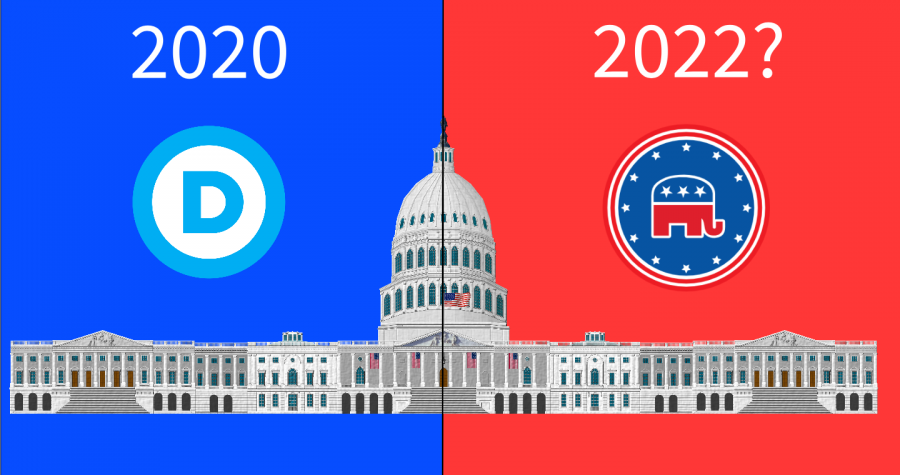United government to not last long without caution
If the Democrat Congress isn’t careful, they could lose their majority in the 2022 elections.
The 2020 election has revealed a great deal about the public opinion of American citizens toward the government. It showed that a lot of people were not content with Trump’s presidency, especially his handling of the COVID pandemic. Because of this, the American people elected a Democratic president, Senate and House.
Now, the 2020 election could be seen as a victory for Democrats. Biden got the most votes of any presidential candidate ever, in an election with the highest turnout rate since the 19th century. Georgia surprisingly flipped blue, while Arizona and Nevada were solidified as newly blue states.
This Democrat win, however, is not as good as Democrats would expect. In fact, it could be quite the opposite. This unified government will not only be unable to accomplish many items on its agenda, but the Congress may flip by the next election.
Just because the Democrats won control of Congress does not mean that they will be able to uphold everything that they promise. There are two barriers to that being the case.
The first barrier is the Blue Dog Democrat caucus. According to their website, this group is “dedicated to pursuing fiscally-responsible policies, ensuring a strong national defense for our country and transcending party lines to get things done for the American people.” In other words, they’re more conservative Democrats –socially liberal but fiscally conservative.
With the House having such a slim difference, a Democratic bill can not pass without the approval of the Blue Dogs. That’s why I believe fiscally liberal policies such as Medicare-for-all, tax increases for the rich and free college tuition will not be passed as the House stands now.
Another wrench in Democrats’ plans is the tightness of the Senate. At a glance, the Democrats barely have an edge, allowing Biden to follow through on his 100 day plan. But the entire Senate may be dependent on one person: Joe Manchin. As the Senator of West Virginia, a state that had nearly a 40 point victory for Trump, he has had to keep his conservative constituents happy. Because of this, he has voted with Trump on policies over half the time, more than any of his Democrat colleagues, according to FiveThirtyEight.
This will likely not change, as just recently Manchin casted doubt on the Democrat effort to increase stimulus checks to $2000. According to CNBC, “The Washington Post first quoted the West Virginia lawmaker as saying he would ‘absolutely’ oppose another coronavirus relief check to Americans.” This will make it hard for Democrats to go through on their promises, especially since Manchin is facing reelection in 2022.
Manchin’s seat is not the only one to be contested in 2022, as the elections that year can prove a massive shift of Congress. Democrat seats in Georgia, New Hampshire, Arizona,\ and Nevada can be flipped depending on the job approval of Joe Biden. With a unified government, there could be a distaste towards the Democrat party if they don’t satisfy their constituents.
For example, in 2010, Democrats suffered heavy losses in the House and similar losses in the Senate. This was because of their votes towards the Obama policy of the Affordable Care Act. “There are clear signs that pundits who predicted high-profile losses for the Democratic Party in districts and states where health care was a major campaign issue were right,” an article from after the election in TIME reads.
Will this effect be repeated in Biden’s first midterms? It’s too early to tell, but Democrats should be aware of the effects that their policies could have upon citizens nationwide.
Democrats should be careful in general, as their decisions could carry huge weight and huge consequences in the future and affect the legacy of Biden’s presidency.






















































